"Old Hill" horse sanctuary is the first and only shelter of this kind in Serbia and the Balkans. The team of this shelter strives every day to provide optimal living conditions for horses that, if the sanctuary were not available, would be doomed to spend the rest of their lives in inadequate conditions due to trauma and injuries caused by inhumane treatment.
Violeta Jović, the representative of "Old Hill," told us what rescue and care for horses look like and what other animals are taken care of by the hardworking team of this shelter. She also shows how you can support them in the noble mission they are dedicated to and what makes this organization unique.
How was your organization established? What changed from the beginning to this day?
Violeta: Asylum "OldHill" officially started operating in August 2015, but since 2012 dates back to the beginning of rescuing horses in trouble when the need for a horse shelter was realized. Before the asylum, there was no place for organized reception of horses that were abused, neglected, starved, or rejected, but it was sporadic if some rescue operations took place. From the first rescued horse until March 2021, about 70 horses and donkeys found refuge in the "Old Hill" shelter, most of which were happily adopted. A number still reside here due to psycho-physical conditions or years that make them unpopular for adoption. Unfortunately, for some of the horses, it was too late, but at least in the last moments, they were surrounded by love and attention.
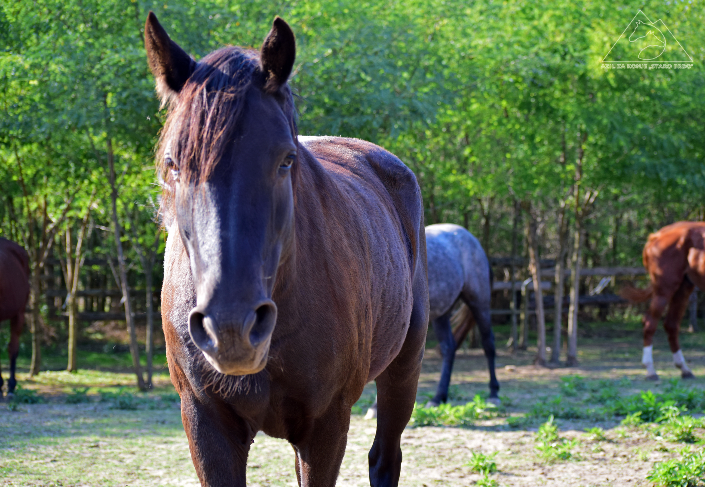
What was your personal motivation for working in this type of asylum?
Violeta: Full commitment is needed to the asylum, the rescue mission, and the animals in it because due to the lack of people and large amounts of obligations, anything less than daily and full-time work would not be possible to keep the asylum alive. The love for horses and the humanitarian work behind it has brought and kept me personally, as one of the two permanent asylum volunteers, all these years. On behalf of the founder of the asylum, Zeljko Ilicic, who initiated the "Old Hill, " I can add: It is also a revolt against the injustice done to horses all these years. Because they have remained legally forgotten and invisible and therefore left to good or bad (only) the owner's will. Establishing a horse shelter is an attempt to correct this injustice.
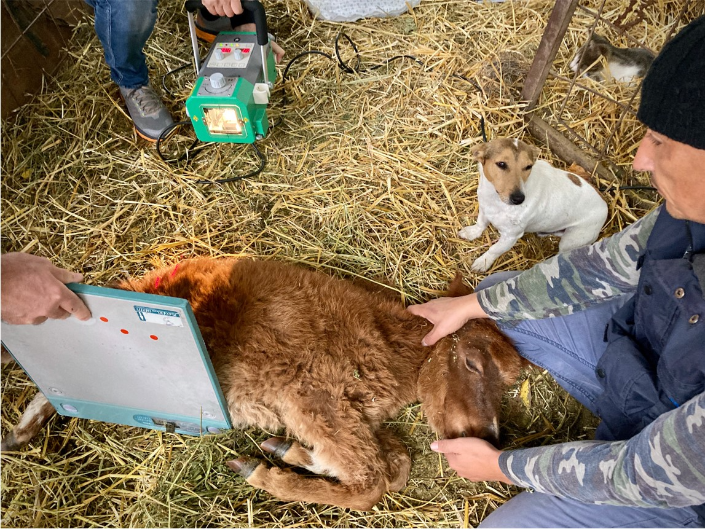
How has the COVID-19 crisis affected the work of the asylum? How much has the way you operate changed? What activities have you been most focused on in the past two years?
Violeta: The COVID pandemic has brought about a significant change in the lives of all of us, both privately and professionally. We spent the quarantine period with barely obtained movement permits (which we received thanks to ORCA), which were a big problem for all animal keepers if they were outside the place of residence. The horses must receive food at regular and approximately the same time, which would not be possible due to the ban on movement, except that we slept in the asylum. In addition to organizational torment, the question of what to do with finances if the economy fails and people's priorities and opportunities change has also brought great anxiety for the future of asylum. Also, due to epidemiological measures, we spent the whole of 2020 without visitors, but we hope it will remain behind us forever.
The luck in the accident is that many things went online due to the period of banning movement and gathering. People connected and networked even more, but they also wanted nature, greenery, and animals.
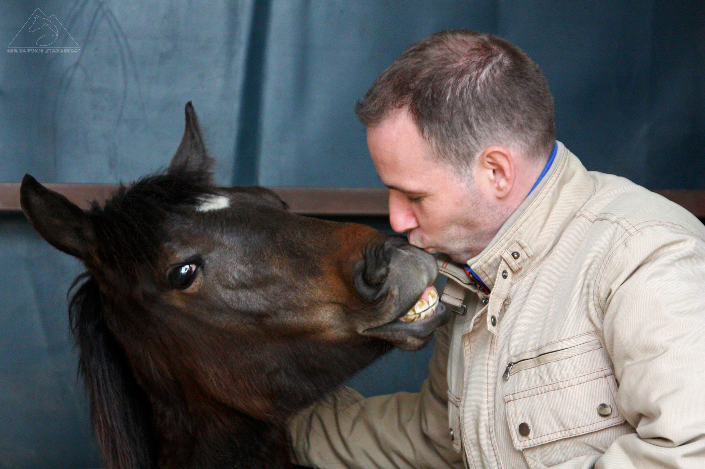
How is "Old Hill" financed, what different types of donors do you cooperate with, and how? How can someone support your work? Are there any donors (individuals, companies, organizations) with whom you have long-term cooperation, and what does it looks like?
Violeta: Horse sanctuary "Old Hill" is registered as an association of citizens and a non-profit organization; it entirely relies on donations from private and legal entities. Our most significant support is individuals, people who want and help our work when and how much they can. Many of them have been with us for years, and some even have standing orders in their accounts. Financial aid itself means a lot to us, but moral support is also wind behind us all this time. We have met some of them personally, but we still do not know most of them. We hope that one day that will change and that all those who support us will visit the asylum at least once, for an Open Day (from May to October, every last week of the month), so that they can meet those who help, and thank them personally for all that they have helped to achieve. On the other hand, we have, unfortunately, far less cooperation with legal entities, and we would like that to change in the future. In return, we would like to host teams of legal entities that support us, in the green, among animals, away from offices and obligations.
We also have many years of cooperation with two organizations to care for animals from abroad. Serbia's Forgotten Paws helped open the asylum and brought many horses and seven (once miniature) pigs to safety. They have also been implementing projects we probably would never have succeeded in on our own, such as a vast rescue operation against a herd of 19 horses in January 2020, drilling an artesian well. We have also received great help from the last two years and the support of the group Baby's Friends: for animals in need, which help many projects that would not come without their help because all the funds we raise we invest in food, veterinarians and other basic needs, such as repairing a 50-year-old tractor, repairing dilapidated electrical networks, installing a fence, etc.
Without the support of all these beautiful people from Serbia and beyond, nothing would be possible, and in this way, when more people give at least a little - miracles happen.
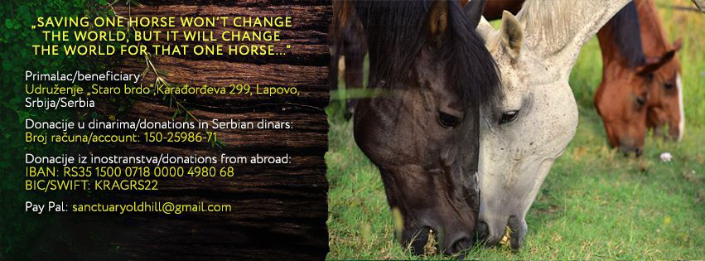
Has the global pandemic affected asylum funding, and how have funding and donations changed during this period? What kind of support is most needed, and how do you get it?
Violeta: Asylum, like most non-profit associations, is entirely dependent on donations from citizens, and there was a severe risk that help would stop coming because everyone was in fear for their own (financial) future. There is no financial security in the asylum, and these difficult times - the COVID pandemic and now the crisis in Ukraine and the world, only increase the uncertainty. At the moment, there are at least ten rescued horses and donkeys in the asylum, which are in recovery or permanent care, and because of them, we cannot "freeze" activities and wait for a better tomorrow. Financial support is always the most necessary for us because of them and all future horses.
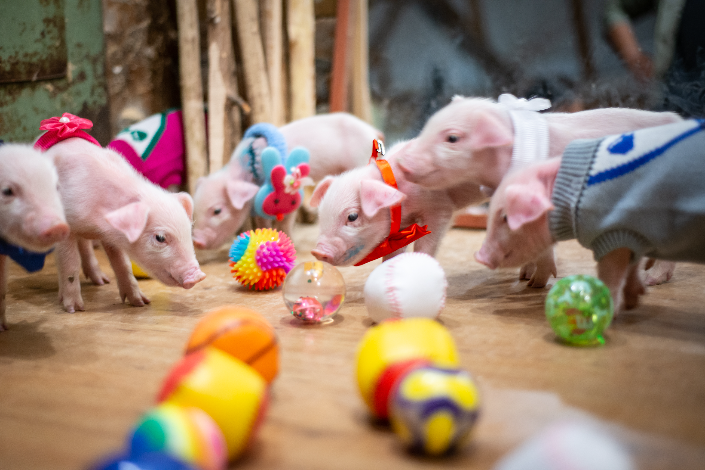
Author: Zlatko Nečevski
We pay with money for everything the asylum needs - from food, veterinarians, horseshoe cutters, transport, repairs, and maintenance to larger and smaller ones—anticipated and unforeseen costs. Commodity donations are possible for a smaller segment of work, in supplementation, consumables such as feeders, drinkers, tools, and the like, while the most basic needs financial assistance. Direct food donations (hay, corn) are challenging to implement because the price of transport "eats" the food price.
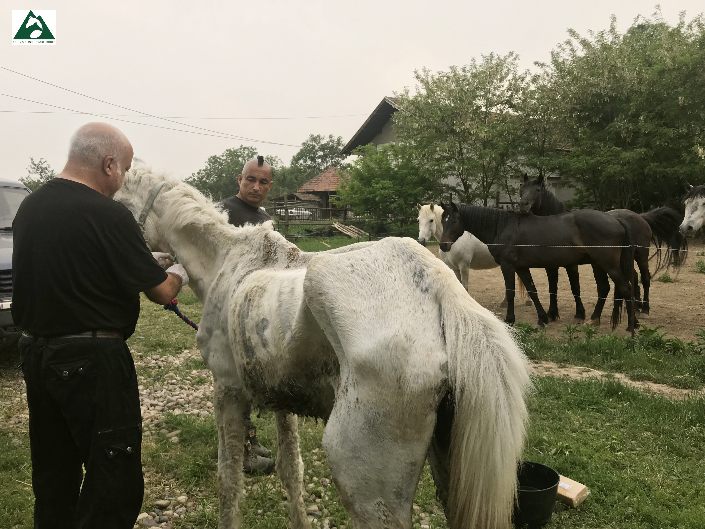
What do you think that "Old Hill" stands out concerning other shelters for abandoned animals in the area and other animal protection organizations?
Violeta: "Old Hill "horse shelter is the first and only horse shelter in Serbia and the region. The process of saving large animals, their treatment, recovery, socialization, and adoption carries significant risks, from the first to the last step. Also, horses and donkeys are never really abandoned because they always have at least minimal financial value in the market. They want to give up, which complicates rescuing an animal in trouble.
On the bright side, the "Old Hill "shelter is the primary function of rescuing and recovering horses. It is also a place where visitors gladly come and prefer to come back because here they have the opportunity to spend days surrounded by greenery and real therapeutic animals. After a day spent here with them, the question remains - who saved whom?
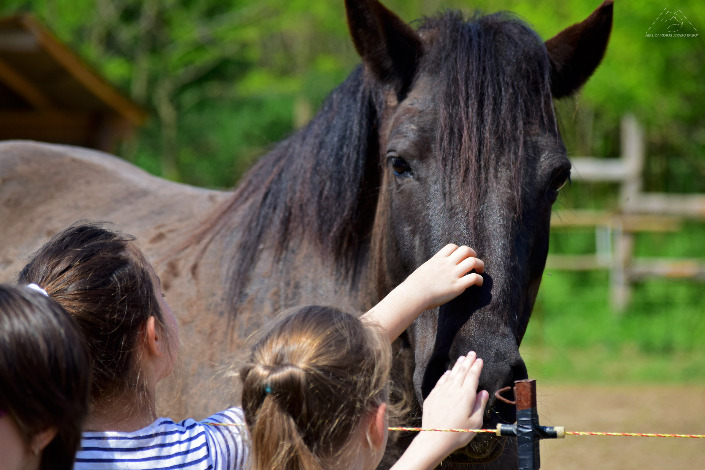
How many members are there in your team, and what does a typical workday look like?
Violeta: Only two people are constantly active in the asylum, sometimes three, with over 50 animals that need daily care. In addition to the most basic activities - feeding, cleaning, providing therapy as required, maintenance, and procurement - time and energy should be left during the day for communication with the community, presence on networks, providing livelihoods, and other activities which we live by and which we strive to contribute to the self-sustainability of asylum. For these reasons - too many obligations and too few people, we have not yet managed to do everything we planned, but we have been working on it without a break and a day off for years.
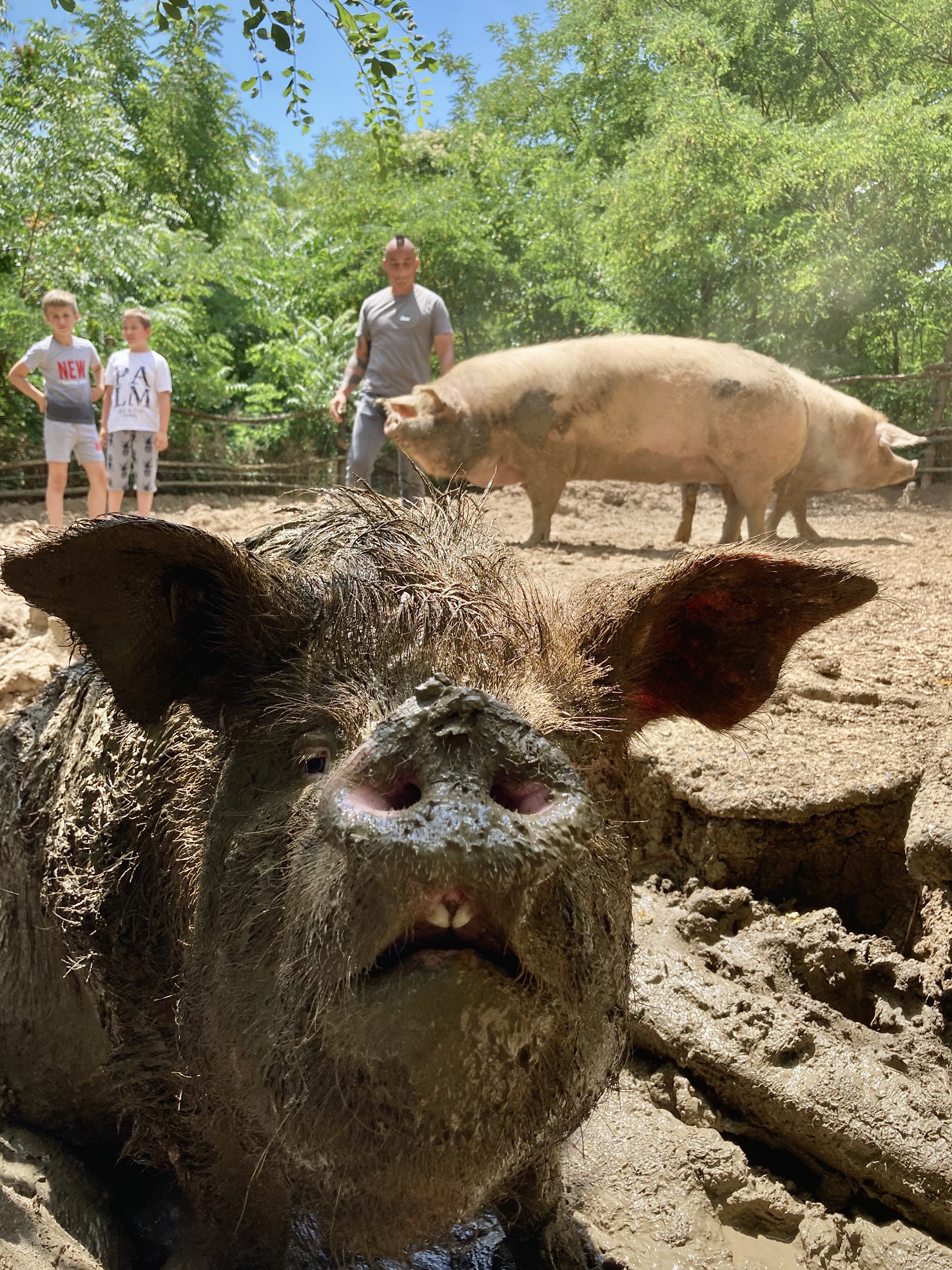
How do you involve the community in your work, and what does it bring to you? How important is community support for the day-to-day functioning of asylum?
Violeta: As far as direct involvement is concerned, the location and number of people in the asylum directly affect the level of community involvement. Lapovo is a small (and smaller) community, and the number of potential permanent volunteers is small. The advantage of big cities, particularly Belgrade, is that large community of diversely interested individuals. In addition, perhaps the most important factor is our time spent working with volunteers - from receiving, through a meeting, delegating responsibilities, monitoring activities (especially keep in mind that this is a shelter for animals that weigh hundreds of kilograms and can seriously injure) and for all planned and unforeseen. Of the two of us, one person would only have to do that, which would make our performance in our daily work less than doing it ourselves.
Apart from this direct work, the community's financial support is the most crucial support for the life of the asylum. Without all the people of goodwill who, on their own or when we call on them for help, get involved and help as much as possible, the asylum would simply be extinguished.
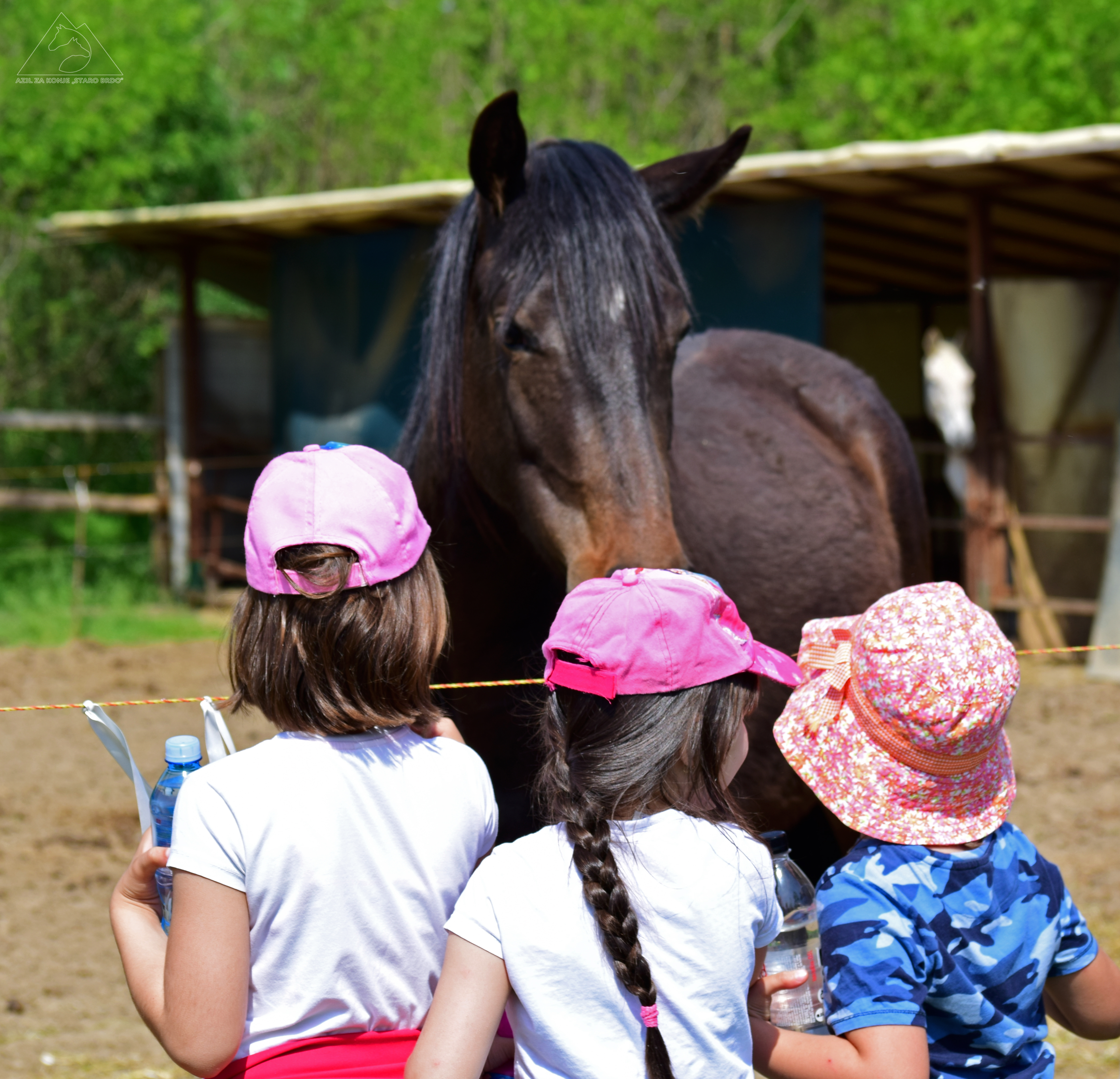
How do you get the animals you take care of? What does caring for them look like?
Violeta: Horses and donkeys come to the shelter from different situations and in entirely different ways. There are rare, bright, and beautiful examples where the previous owners contacted us with a request to accept their pets and take care of them, or we find them new homes because they are no longer able to take care of them but want to provide them a secure future. Still, unfortunately, there are many more tragic fates. From horses that were abused, starved, with open wounds and fractures, left to die in agony, mentally disfigured, to those who became redundant due to their age and bad achievements. All have one thing in common - they are left at the mercy of, more often, the disfavor of their owners. There was no one to protect them.
Asylum does not buy horses because we do not have the finances for that, nor the power to decide which horse to save and when not. But people united and bought the horse when we accepted it for further complete care and nursing, to recover and adopt him when he is ready for that.
Our capacities are not great; there are too many horses to be saved, and too few of us are behind it, but we are doing our best to help everyone.
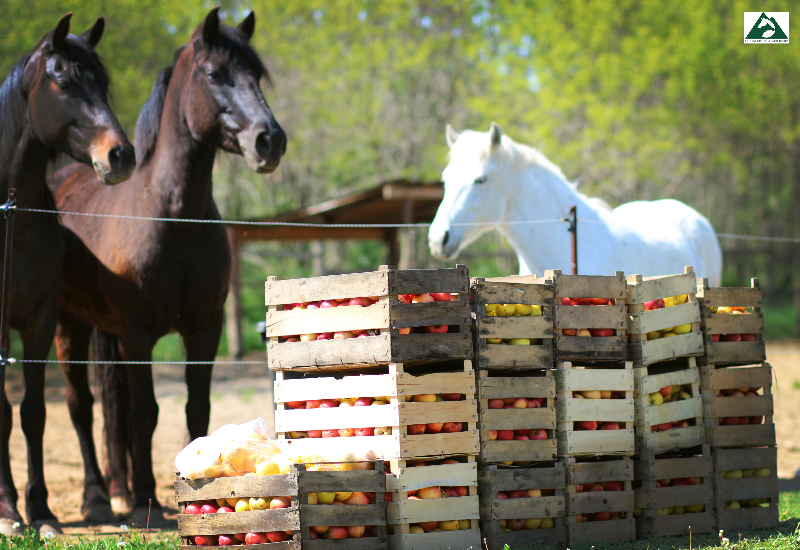
In addition to horses, you take care of other animals in the shelter. Tell us a bit more about the other residents of the asylum. Is there any exciting story?
Violeta: In addition to the horses and donkeys on which the shelter's work is directed, we are also privately rescuing other animals in trouble. Starting with dogs and cats that we all have the opportunity to meet abandoned and/or injured every day, and which often after recovery we fail to adopt but remain permanently with us (about 20 in total at the moment), there are four dwarf shrimps, eight roosters, one water buffalo, as well as seven pet pigs. They were found at the landfill in Nis, thrown away, frozen, starved, only a few days old. One was even with an open wound, most likely from a dog bite. Volunteers rescued them from the organization we work with, Serbia's Forgotten Paws, and after coming back to life, they brought them to us for further safekeeping. We fed them on a pacifier, goat's milk, all seven. More than 3.5 years have passed since that day, and they now weigh about 400 kilograms. They are as cuddly and wonderful as big, clumsy dogs, with which children can move freely. This is probably the only case at the world level where the entire herd of pigs has been preserved without trauma and with the desire to live as long as possible.
Both adults and children here can meet all these animals in a different light, in a different environment, where there is no fear, pain, and stress, but they all approach people with complete confidence.
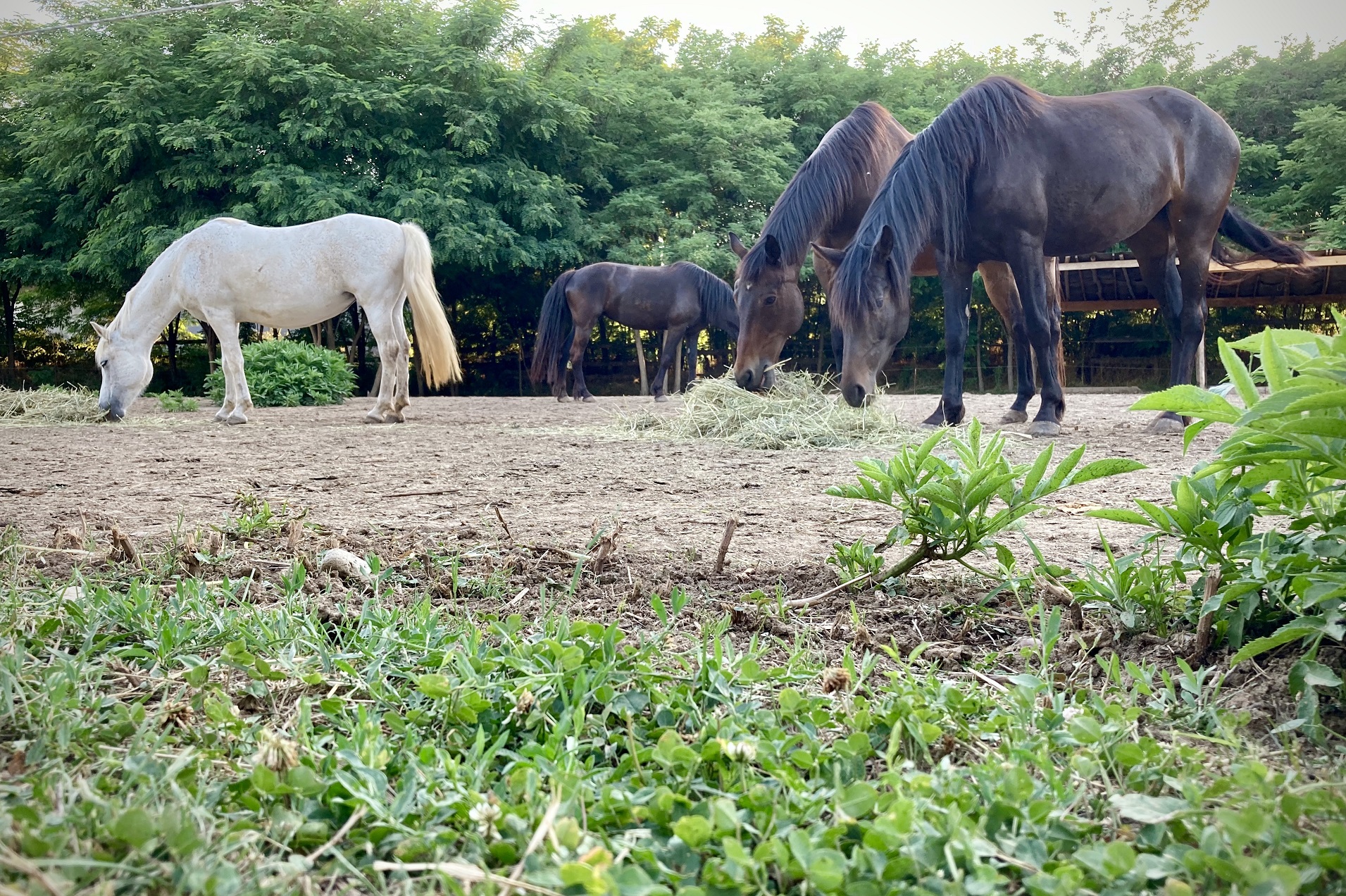
What are the biggest challenges and problems you face in your daily work?
Violeta: The most significant risk and the problem is always financial because the survival of everything else depends on it - whether we will get enough food, whether we will have it for a veterinarian, for therapies, for asylum work, transport, bills. To provide enough finances, we need to be "more visible" to people, which is always a significant challenge in the sea of all other obligations. And, of course, to present to the community in the right way everything that needs to be delivered - from beautiful, happy moments through problems to the sadness that befalls us.
There are always risks when working with heavy, large animals and other dangers in physical work because every injury or disease is at least 50% less than our humanity. And the struggle with time when it is too little for everything that needs to be achieved during the day.
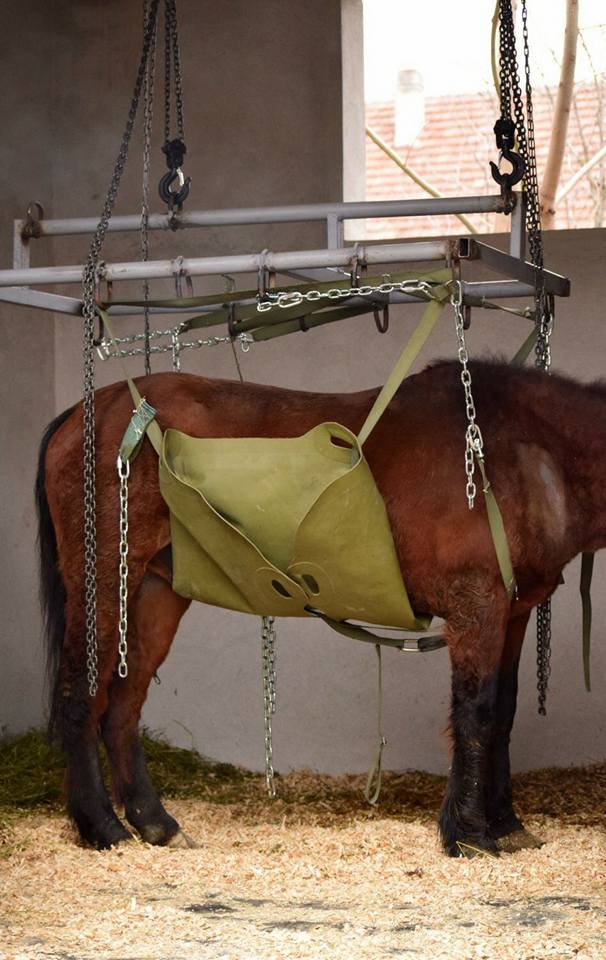
Tell us more about the ReWild Center, which operates within the Old Hill Asylum?
Violeta: "ReWild Center for the Return of Nature" is a project we launched intending to do something about the growing distance of people from Nature (and thus from the very essence of man, who is part of Nature) to contribute to the self-sustainability of horse shelters. The whole project is designed to bring people back to Nature. They have an opportunity to be in a completely natural environment (but also controlled conditions), in a location, we have prepared for this purpose. We organize workshops to teach them the basics of navigating the field - lighting a fire, purifying water, making shelters, finding edible plants, etc. It is a chance to be reminded of what it is like to cooperate with Nature, learn from it, and seek security in it. To be grounded again, and literally, because the whole space is adapted to bare feet. All these activities are held not far from Lapovo, 15 minutes from the exit from the highway, and just an hour a distance from Belgrade.
All information can be found on the site www.starobrdo.com and by email at rewildcentar@gmail.com
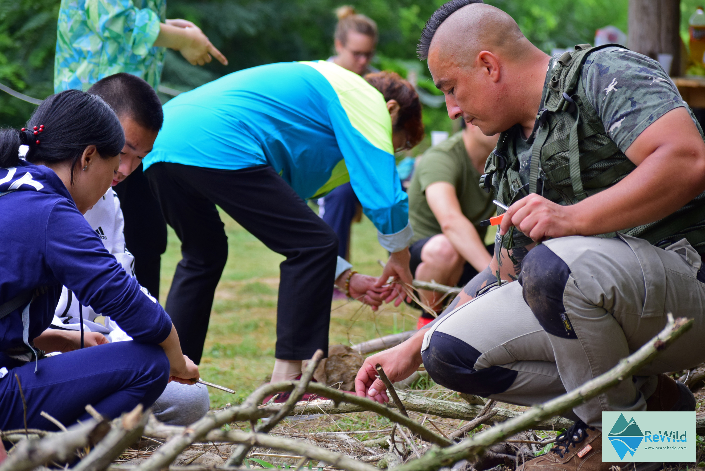
What are the most significant successes you have achieved so far, and what are the most important plans and goals you plan to realize in the future?
Violeta: The most considerable success is that we managed to save so many "written off," despite all the difficulties, as well as the fact that the community recognizes and supports us, which is the most important indicator that what we do is correct necessary. We plan to dedicate more time in the future to the educational aspect of preserving the life and health of horses because if we do not do more in this field, the number of horses in need of salvation will not decrease.
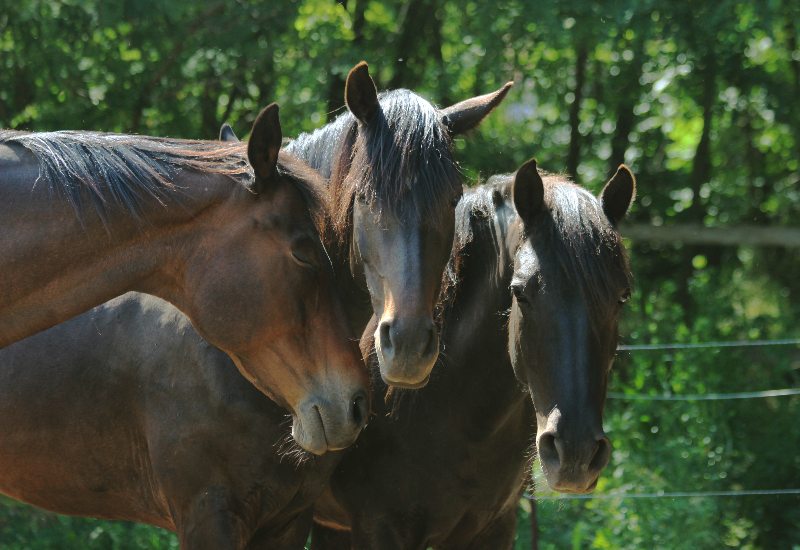
You can support the "Old Hill" horse shelter by paying into one of the following accounts:
- Account: 150-25986-71
- Recipient: Staro brdo Association, Lapovo
- PayPal: sanctuaryoldhill@gmail.com
- Patreon: www.patreon.com/oldhill
- PostNet: 064-18-18-607, Violeta Jovic
If you want to visit this unique asylum, take advantage of the Asylum Open Days, held every last week of the month, from April / May to October (the call is published on social networks).
Visits to the asylum outside the announced dates are not possible.
For more information, write to azilstarobrdo@gmail.com or rewildcentar@gmail.com, or visit the website of this in many ways unique asylum.
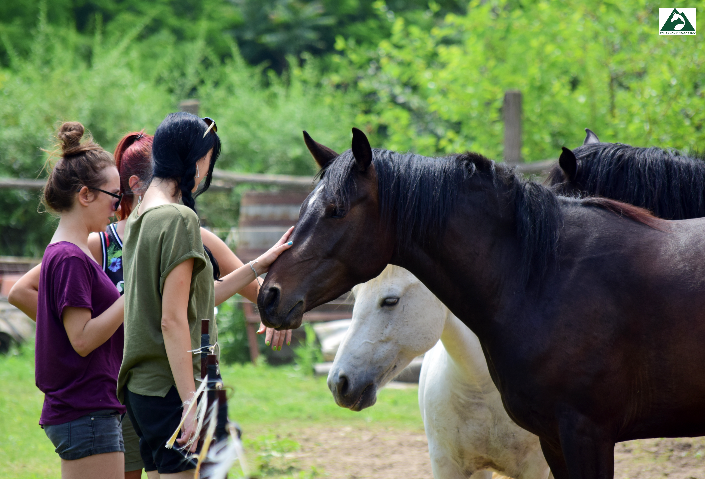
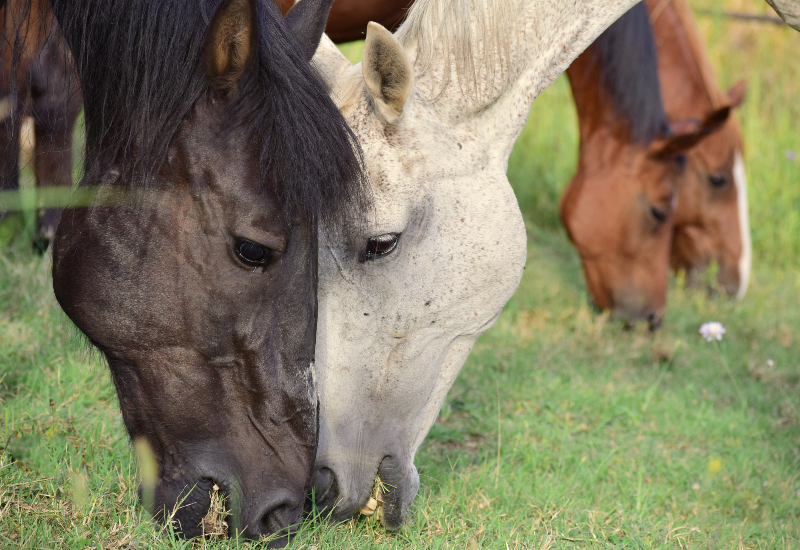

Leave a comment